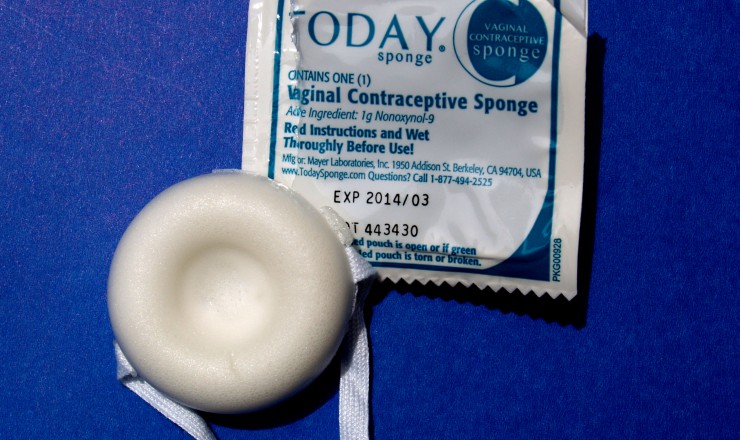Herpes
What is Herpes?
- Herpes is a very common infection that is usually sexually transmitted.
- It is caused by a virus called the herpes simplex virus (HSV) There are two types of HSV:
- HSV 1 usually causes herpes on the mouth. People with this virus can get cold sores or fever blisters on the mouth. However, unprotected oral sex with someone who has herpes on the mouth can spread it to someone’s genitals or anus (butthole).
- HSV 2 usually causes herpes around the genitals or anus. People with this virus can get sores around their genitals or anus. However, unprotected oral sex with someone who has herpes on the genitals* or anus can spread it to someone’s mouth.
- When someone has active sores (sores that they can feel and see), it is called having an “outbreak”. Many people who have herpes never have an outbreak.
How do you get herpes?
- You are most likely get herpes from someone when they are having an outbreak or feel the tingling or itching that suggests an outbreak is about to happen. However, herpes can be spread even if the person with the virus isn’t currently having an outbreak or has never had an outbreak.
- You do not need to have sexual intercourse to get herpes. Herpes is transmitted through skin-to-skin contact with someone who already has herpes.
- You can get herpes on the mouth if you kiss someone who has herpes on the mouth or if you perform oral sex on the genitals or anus of someone who has herpes on the genitals or anus.
- You can get herpes on the genitals if you have genital skin-to-skin contact with someone who has herpes on the genitals or anus or if someone with herpes on the mouth performs oral sex on your genitals or anus.
- You can spread herpes if you are sharing sex toys and you don’t disinfect them or put a new condom on them when a new person uses the toys.
- If you touch one of your sores and then touch another part of your body, it is possible to spread the virus to that part of your body.
- A pregnant person can pass on the virus to their baby during childbirth.
How do you know if you have herpes?
- Many people who have herpes never have an outbreak.
- If someone is going to get an outbreak, sores usually show up 2-20 days after getting the virus. The skin may itch or tingle before sores develop.
- When someone has their first outbreak, they may feel like they have the flu, have pain in their muscles and joints, and find it painful to urinate (pee).
How can you get tested for herpes?
- If you notice anything on your genitals or near your mouth that looks unusual, see your clinician right away. They will look at the area and take a swab of the sore to see if it’s herpes. This is the most common way to get tested for herpes.
- There is a new blood test that can tell you if you have HSV 1 or HSV 2 in your body. However, you have to go to a specific lab to get it and it isn’t covered by OHIP. This test costs approximately $160. The test may not be useful because it cannot tell you if you will ever have an outbreak or if you do, where on your body sores will appear.
For more information on testing for STIs, check out The Real Facts About STI Testing.
What if you test positive for herpes?
- Even though herpes can’t be cured, there is treatment available to manage your outbreaks.
- Some people take medication on a regular basis to make outbreaks less frequent and to reduce the chance of passing on the virus to others.
- Your clinician can also prescribe a medication that you take when you have an outbreak. You should start this medication as soon as possible, or within 72 hours of first noticing symptoms. It can make the outbreak shorter and less uncomfortable.
- Over time, outbreaks tend to become less frequent and milder. Some people will get outbreaks once a month or once every few months. 1 in 10 people will experience only 1 outbreak ever.
- You may find you are more likely to get an outbreak if:
- You are tired, under stress, or sick.
- You are not eating or sleeping well.
- You spent too much time in the sun.
- You have your period.
- You are taking certain medications.
- You are pregnant.
- You are HIV positive or have another condition that affects your immune system.
How can you lower your risk of getting herpes and/or passing it on to your partner(s)?
- Make informed decisions. Talk to your partner(s) about STIs and the use of safer sex tools.
- Use condoms on penises* or dildos for vaginal* or anal sex, use latex gloves for finger play and fisting, and use condoms/dams for oral sex to lower your chances of getting or transmitting herpes.
- Because condoms do not cover the entire area affected by herpes, they do not provide the same level of protection from herpes as they do for most other STIs. However, they can still reduce the risk of transmitting herpes.
- If you are sharing sex toys, be sure to disinfect them or put a new condom on them when a new person uses the toys.
- You are most likely to spread herpes during an outbreak or right before one is about to happen. Avoid oral sex when you have cold sores around the mouth, and avoid vaginal and anal sex if you have an outbreak of herpes on the genitals or anus.
- If you have herpes, talk to your clinician about medications that may reduce the odds of passing herpes to a partner.
- Avoid sharing objects that come into contact with your mouth during an outbreak of herpes on the mouth. It is unlikely to spread herpes on the mouth this way but it is possible.
For more information on how STIs are passed on check out Transmitting STIs: An Unwelcome Gift.
For information on how to protect yourself and your partner(s), check out Protecting Yourself and Your Partners From STIs.
What can you do when you have a herpes outbreak?
- See your clinician as soon as possible or within 72 hours to consider medication.
- Keep the area where the sores are clean and dry.
- Wear cotton underwear and loose fitting clothes. Don’t wear underwear when you sleep.
- Limit your time in the sun.
- If it hurts when you urinate (pee), sit in a tub of warm water to urinate, or pour water over the area while you pee.
- Apply ice packs to the sores to reduce pain.
- Wash your hands if you touch an area with sores. Avoid touching your mouth or eyes after you touch the sores because this could spread herpes to the area. Also wash any bath towels you have used before you use them again.
| Useful Tip |
| Consider telling your partner if you have herpes so they can be tested and treated too. For more on talking to your partner, check out Telling Your Partner You Have an STI. |
For a downloadable resource on this topic, please visit Planned Parenthood Toronto Factsheet Database.
If you have questions about this topic, feel free to contact one of our peer educators. [Link]
*We know that these aren’t the words everyone uses for their bodies (eg. trans folks), and support you using the language that feels best for you.
Last Edited: May 2020






